#习近平
Text
What's Happening in China? The November 2022 Protests
Hello! I know that there's so much going on in the world right now, so not everyone may be aware of what is happening in China right now. I thought that I would try to write a brief explainer, because the current wave of protests is truly unprecedented in the past 30+ years, and there is a lot of fear over what may happen next. For context, I'm doing this as someone who has a PhD in Asian Studies specialising in contemporary Chinese politics, so I don't know everything but I have researched China for many years.
I'll post some decent links at the end along with some China specialists & journalists I follow on Twitter (yeah I know, but it's still the place for the stuff at the moment). Here are the bullet points for those who just want a brief update:
Xi Jinping's government is still enacting a strict Zero Covid policy enforced by state surveillance and strict lockdowns.
On 24 November a fire in an apartment in Urumqi, Xinjiang province, killed 10. Many blamed strict quarantine policies on preventing evacuation.
Protests followed and have since spread nationwide.
Protesters are taking steps not seen since Tiananmen in 1989, including public chants for Xi and the CCP to step down.
Everyone is currently unsure how the government will respond.
More in-depth discussion and links under the cut:
First a caveat: this is my own analysis/explanation as a Chinese politics specialist. I will include links to read further from other experts and journalists. Also, this will be quite long, so sorry about that!
China's (aka Xi Jinping's) Covid Policy:
The first and most important context: Xi has committed to a strict Zero Covid policy in China, and has refused to change course. Now, other countries have had similar approaches and they undoubtedly saved lives - I was fortunate to live in New Zealand until this year, and Prime Minister Ardern's Zero Covid approach in 2020-2021 helped protect many. The difference is in the style/scope of enforcement, the use of vaccines, and the variant at play. China has stepped up its control on public life over the past 10 years, and has used this to enforce strict quarantine measures without full regard to the impact on people's lives - stories of people not getting food were common. Quarantine has also become a feared situation, as China moves people to facilities often little better than prisons and allegedly without much protection from catching Covid within. A personal friend in Zhengzhou went through national, then provincial, then local quarantines when moving back from NZ, and she has since done her best to avoid going back for her own mental and physical health. Xi has also committed China to its two home-grown vaccines, Sinovac and Sinopharm, both of which have low/dubious efficacy and are considered ineffective against new variants. Finally, with delta and then omicron most of the Zero-Covid countries have modified their approach due to the inability to maintain zero cases. China remains the only country still enacting whole-city eradication lockdowns, and they have become more frequent to the point that several are happening at any given time. The result is a population that is incredibly frustrated and losing hope amidst endless lockdowns and perceived ineffectiveness to address the pandemic.
Other Issues at Play:
Beyond the Covid situation, China is also wrestling with the continued slowdown in its economic growth. While its economic rise and annual GDP growth was nigh meteoric from the 80s to the 00s, it has been slowing over the past ten years, and the government is attempting to manage the transition away from an export-oriented economy to a more fully developed one. However, things are still uncertain, and Covid has taken its toll as it has elsewhere the past couple of years. Youth unemployment in particular is reaching new highs at around 20%, and Xi largely ignored this in his speech at the Party Congress in October (where he entered an unprecedented third term). As a result of the perceived uselessness of China's harsh work culture and its failure to result in a better life, many young Chinese have been promoting 躺平 tǎng píng or "lying flat", aka doing the bare minimum just to get by (similar to the English "quiet quitting"). The combination of economic issues and a botched Covid approach is important, as these directly affect the lives of ordinary middle-class Chinese, and historical it has only been when this occurred that mass movements really took off. The most famous, Tiananmen in 1989, followed China's opening up economic reforms and the dismantling of many economic safety nets allowing for growing inequality. While movements in China often grow to include other topics, having a foundation in something negatively impacting the average Han Chinese person's livelihood is important.
The Spark - 24 Nov 2022 Urumqi Apartment Fire:
The current protests were sparked by a recent fire that broke out in a flat in Urumqi, capital of the Xinjiang province. (This is the same Xinjiang that is home to the Uighur people, against whom China has enacted a campaign of genocide and cultural destruction.) The fire occurred in the evening and resulted in 10 deaths, which many online blamed on the strict lockdown measures imposed by officials, who prevented people from leaving their homes. It even resulted in a rare public apology by city officials. However, with anger being so high nationwide, in addition to many smaller protests that have occurred over the past two years, this incident has ignited a nationwide movement.
The Protests and Their Significance:
The protests that have broken out over the past couple of days representing the largest and most significant challenge to the leadership since the 1989 Tiananmen movement. Similar to that movement, these protests have occurred at universities and cities across the country, with many students taking part openly. This scale is almost unseen in China, particularly for an anti-government protest. Other than Tiananmen in 1989, the most widespread movements that have occurred have been incidents such as the protest of the 1999 Belgrade bombings or the 2005 and then 2012 anti-Japanese protests, all of which were about anger toward a foreign country.
Beyond the scale the protests are hugely significant in their message as well. Protesters are publicly shouting the phrases "习近平下台 Xí Jìnpíng xiàtái!" and "共产党 下台 Gòngchǎndǎng xiàtái!", which mean "Xi Jinping, step down/resign!" and "CCP, step down/resign!" respectively. To shout a direct slogan for the government to resign is unheard of in China, particularly as Xi has tightened control of civil society. And people are doing this across the country in the thousands, openly and in front of police. This is a major challenge for a leader and party who have prioritised regime stability as a core interest for the majority of their history.
Looking Ahead:
Right now, as of 15:00 Australian Eastern time on Monday, 28 November 2022, the protests are only in their first couple of days and we are unsure as to how the government will respond. Police have already been seen beating protesters and journalists and dragging them away in vehicles. However, in many cases the protests have largely been monitored by police but still permitted to occur. There seems to be uncertainty as to how they want to respond just yet, and as such no unified approach.
Many potential outcomes exist, and I would warn everyone to be careful in overplaying what can be achieved. Most experts I have read are not really expecting this to result in Xi's resignation or regime change - these things are possible, surely, but it is a major task to achieve and the unity & scale of the protest movement remains to be fully seen. The government may retaliate with a hard crackdown as it has done with Tiananmen and other protests throughout the years. It may also quietly revamp some policies without publicly admitting a change in order to both pacify protesters and save face. The CCP often uses mixed tactics, both coopting and suppressing protest movements over the years depending on the situation. Changing from Zero Covid may prove more challenging though, given how much Xi has staked his political reputation on enforcing it.
What is important for everyone online, especially those of us abroad, is to watch out for the misinformation campaign the government will launch to counter these protests. Already twitter is reportedly seeing hundreds of Chinese bot accounts mass post escort advertisements using various city names in order to drown out protest results in the site's search engine. Chinese officials will also likely invoke the standard narrative of Western influence and CIA tactics as the reason behind the protests, as they did during the Hong Kong protests.
Finally, there will be a new surge of misinformation and bad takes from tankies, or leftists who uncritically support authoritarian regimes so long as they are anti-US. An infamous one, the Qiao Collective, has already worked to shift the narrative away from the protests and onto debating the merits of Zero Covid. This is largely similar to pro-Putin leftists attempting the justify his invasion of Ukraine. Always remember that the same values that you use to criticise Western countries should be used to criticise authoritarian regimes as well - opposing US militarism and racism, for example, is not incompatible with opposing China's acts of genocide and state suppression. If you want further info (and some good sardonic humour) on the absurd takes and misinfo from pro-China tankies, I would recommend checking out Brian Hioe in the links below.
Finally, keep in mind that this is a grass-roots protest made by people in China, who are putting their own lives at risk to demonstrate openly like this. There have already been so many acts of bravery by those who just want a better future for themselves and their country, and it is belittling and disingenuous to wave away everything they are doing as being just a "Western front" or a few "fringe extremists".
Links:
BBC live coverage page with links to analysis and articles
ABC (Australia) analysis
South China Morning Post analysis
Experts & Journalists to Check Out:
Brian Hioe - Journalist & China writer, New Bloom Magazine
Bonnie Glaser - China scholar, German Marshall Fund
Vicky Xu - Journalist & researcher, Australian Strategic Policy Institute
Stephen McDonnell - Journalist, BBC
M Taylor Fravel - China scholar, MIT
New Zealand Contemporary China Research Centre - NZ's hub of China scholarship (I was fortunate to attend their conferences during my PhD there, they do great work!)
If you've reached the end I hope this helps with understanding what's going on right now! A lot of us who know friends and whanau in China are worried for their safety, so please spread the word and let's hope that there is something of a positive outcome ahead.
#孟珏’s china corner#中国#上海#习近平#习近平下台#共产党下台#China#Shanghai#China protests#China protests 2022#Xi Jinping#Xi Jinping step down#CCP step down#Xi Jinping resign#CCP resign#乌鲁木齐#Urumqi#Urumqi fire#Urumqi apartment fire
1K notes
·
View notes
Text
youtube
China is joining Russia as part of an axis of misinformation in trying to influence American elections.
Rachel Maddow referenced this article in her report from the nonpartisan Foundation for Defense of Democracies (FDD). It's worth a look.
Much Ado About ‘Somethings’
Being a democracy can be a disadvantage in the digital age. Malefactors can easily manipulate information to attempt to achieve dubious goals.
We need to retaliate against China and Russia. But spamming such populations under totalitarian rule would not have the same impact that it does in democracies. But we could try to punch holes in the firewalls such countries erect around their own information infrastructure. Let the breeze of free information occasionally flow and permit Russians to know about Putin's war crimes in Ukraine and let Chinese see Xi's genocide against the Uygurs in Xinjiang.
What people can do here is get off of Twitter/X and urge others to do the same. Under megalomaniac billionaire Elon Musk, misleading information and hate speech have grown exponentially on the platform.
Old habits die hard and some people have a preternatural attachment to tweeting. But as we see in Rachel Maddow's piece and in the FDD article, Twitter/X is responsible for an inordinate amount of misinformation. It's time to starve the beast one account at a time.
#china#xi jinping#interference in us elections#fake social media accounts#misinformation#state-directed propaganda#rachel maddow#tiffany hsu#spamouflage#social media#twitter#x#elon musk#leave twitter#get off twitter#delete twitter#quit twitter#election 2024#vote blue no matter who#习近平#误传#假新闻#Youtube
13 notes
·
View notes
Text
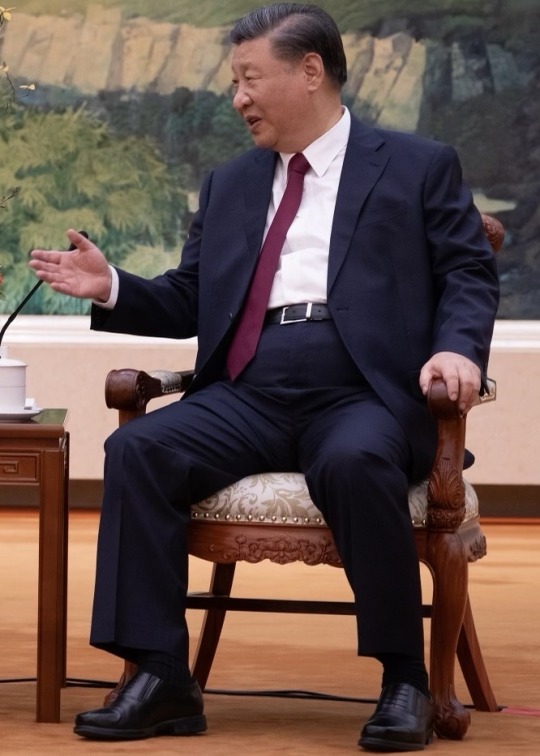
Xi Jinping
#suitdaddy#suiteddaddy#suit and tie#suited daddy#men in suits#daddy#suited#suited grandpa#suitedman#suitfetish#suit bulge#suit daddy#suited men#buisness suit#suited man#suitedmen#chinese men#chinese man#Xi Jinping#习近平
18 notes
·
View notes
Text
【菁英論壇】太子黨大集結 習盡失軍心
2 notes
·
View notes
Photo
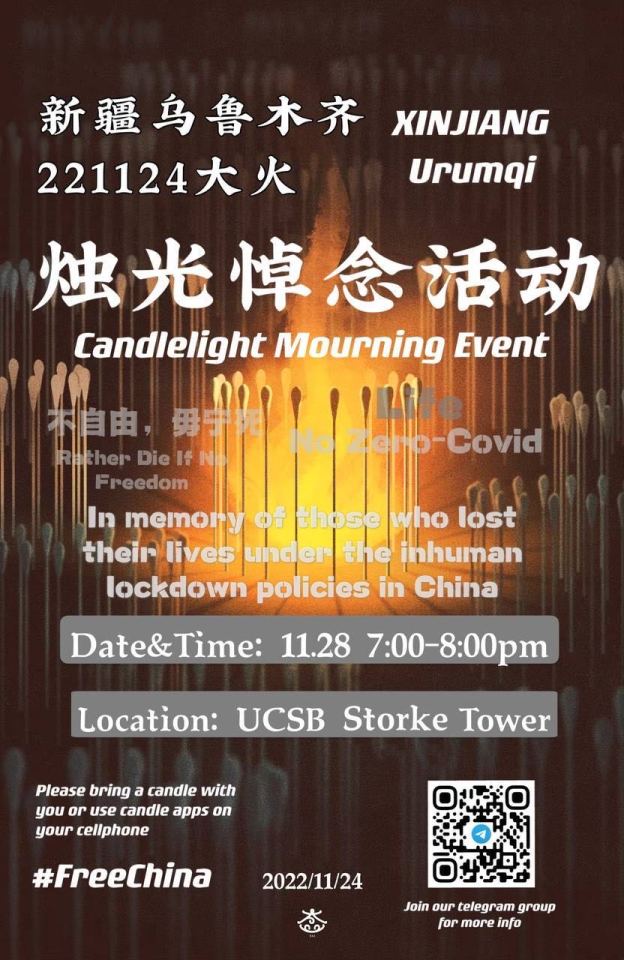
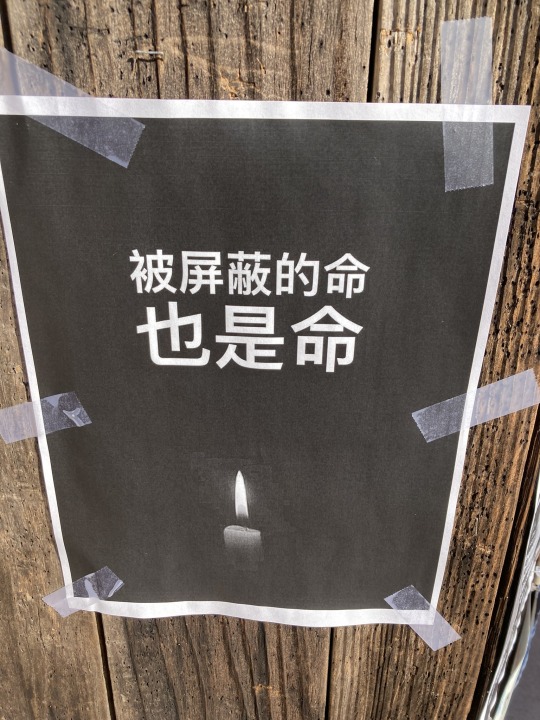
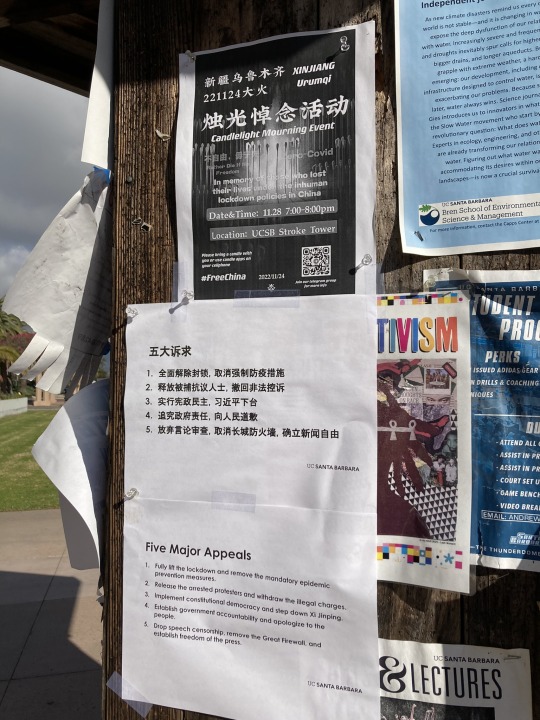
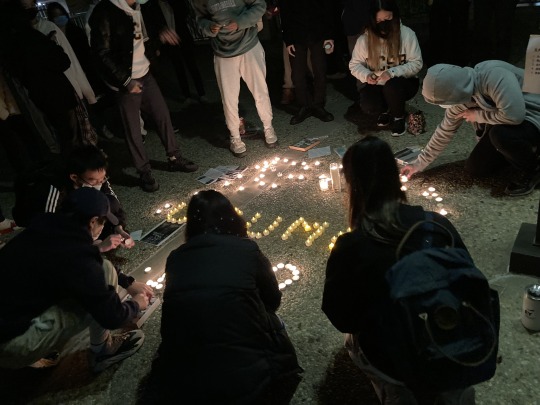
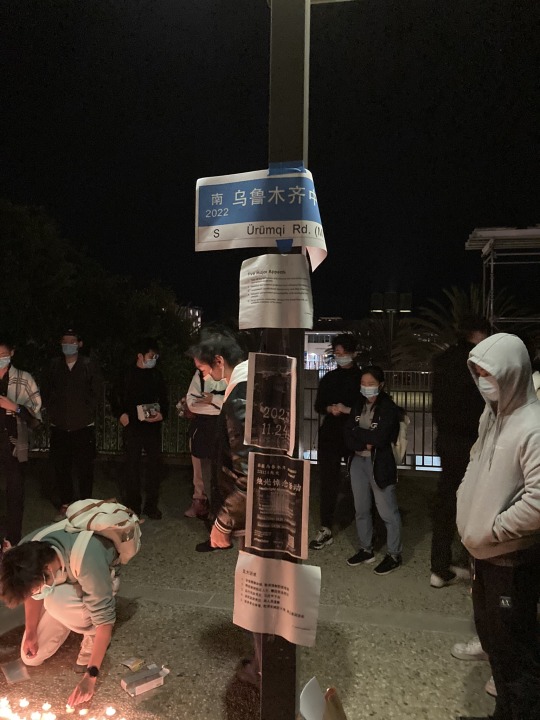

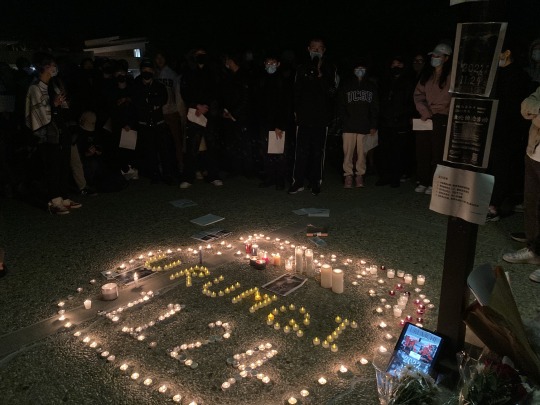

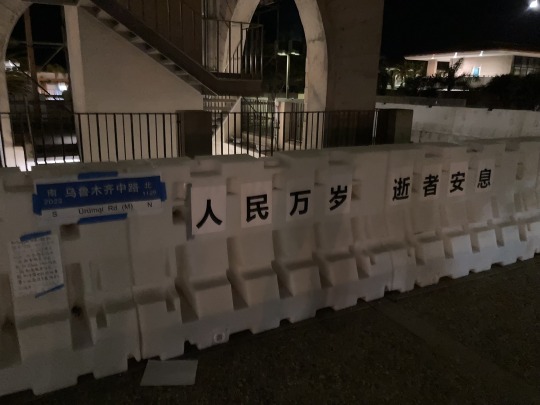
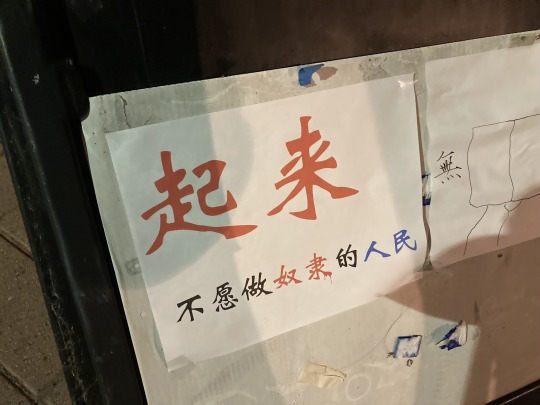
新疆乌鲁木齐大火烛光悼念活动。大概有一百多的中国留学生参加,我听了无数的年轻人自发地讲话,他们分享了自己亲朋好友以及中国同胞所受到的压迫,我们都一起喊了“习近平下台”之类的话,感觉中国终于有希望了,真的很感动!
Candlelight vigil for the victims of the fire in Urumqi, Xinjiang. About hundred or so Chinese students participated in the event, and I heard countless young Chinese spontaneously speak out, sharing their own experiences with political repression and even shouting lines like “Xi Jinping, step down!” It feels like China finally has hope again--it was genuinely really moving!
9 notes
·
View notes
Text
星马领导人接连访中学者分析:北京积极拉拢各国
中央社/侯姿莹 …

View On WordPress
4 notes
·
View notes
Photo

Xi Jinping and Vladimir Putin at the 4th CICA Summit held in Shanghai
Taken on May 21, 2014
Photographer: Sergey Guneev (Сергей Гунеев)
#Sergey Guneev#Сергей Гунеев#Xi Jinping#Vladimir Putin#Putin#习近平#CICA Summit#CICA#Shanghai#上海#2014#Gazprom#toasting#toosten#brindar
14 notes
·
View notes
Text


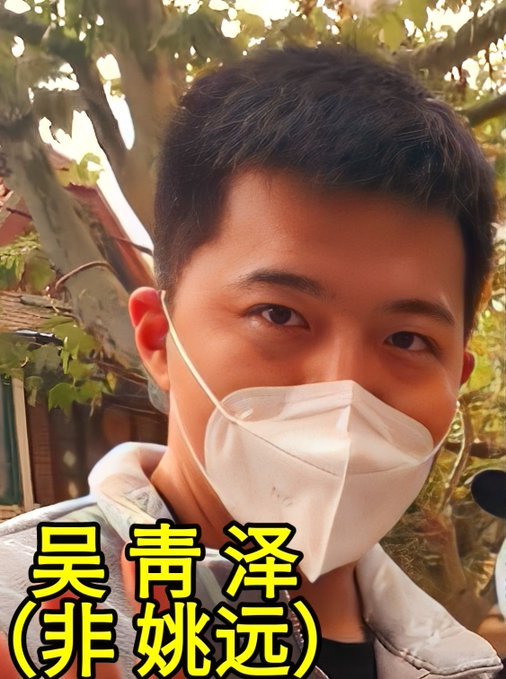
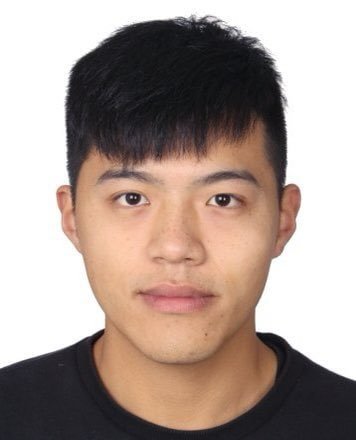
我公安干警吴青泽实名反共誓必亲手枪毙习近平光复香港时代革命白纸革命万岁万岁万万岁平反六四习近平狗维尼必须下台被枪毙共匪恶党血战血偿
2 notes
·
View notes
Text
2021: PRC Supply-side Structural Reform, Not Supply-side Economics
Basic Issues of Xi Jinping’s Thought on Socialism with Chinese Characteristics for a New Era – Serial (18)
What is the difference between supply-side structural reform and the supply-side economics school of thought?
供给侧结构性改革与供给学派的区别是什么
March 01, 2021 Source: People’s Daily Online – Theory Channel
Original title: Deepening supply-side structural reform
From Basic Issues in Xi Jinping Thought…
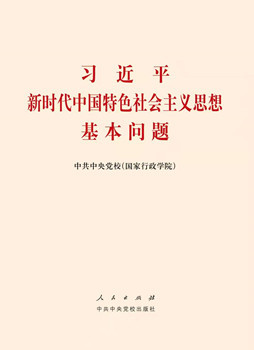
View On WordPress
#Chinese#Communist Party#politics#PRC#stagflation#structural reform#supply-side#Xi Jinping#Xi Jinping Thought#共产党#中国#习近平#供给侧结构性改革
0 notes
Text
youtube
If Trump gets back into office he may follow in the footsteps of Hong Kong which allows only state-approved candidates to run in elections.
The word "patriot" in the US nowadays refers to conspiracy-believing MAGA chumps. Perhaps in China it means a sycophant of the régime.
Speaking of China, Xi's paranoia is becoming increasingly obvious. Officials are suddenly disappearing from sight and others are dying mysteriously. Politically, China is resembling Putin's Russia.
China’s Xi goes full Stalin with purge
In a sign of instability in Beijing’s top ranks, foreign policy and defense officials are vanishing as Xi roots out perceived enemies.
Putting unchecked power in one person's hands (Xi, Putin, Trump, etc.) is dangerous for any country. When people are too fearful to offer an honest opinion then problems are allowed to fester and spiral out of control. China's real estate crisis and rising youth unemployment did not happen overnight.
Xi Jinping's tendencies have been known for years but he's getting much worse. Years ago he censored Winnie the Pooh because some people pointed out a resemblance between Winnie and Xi. Now senior officials are going missing with no explanation.
#hong kong#china#“patriots only” elections#parody of democracy#unfree elections#dictatorship#香港#选举#中国#专政#习近平#维尼熊#donald trump
2 notes
·
View notes
Text
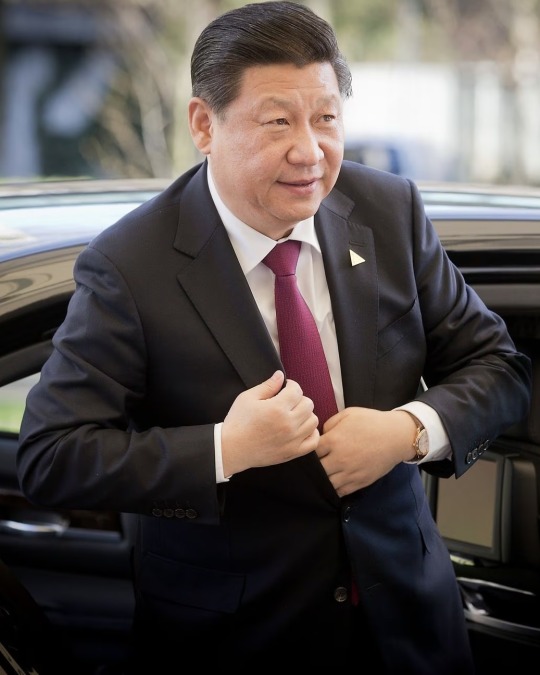
Xi Jinping
#suitdaddy#suiteddaddy#suit and tie#suited daddy#men in suits#daddy#suited#suitfetish#suited grandpa#suitedman#suit daddy#suited men#suited man#buisness suit#suited up#suitedmen#Chinese man#Chinese men#Xi Jinping#习近平
13 notes
·
View notes
Video
youtube
根本不忠誠!共軍不想戰也不能戰!寧願鋌而走險貪瀆 也不願武力犯台?誰才是蔣經國路線?中共武嚇台灣手段 有別以往?萬馬齊瘖的中國 下一個,王岐山?...
#youtube#新聞大破解#黃清龍#吳明傑#新年談話#台灣大選#中共內鬥#中國經濟#拜登#新闻大破解#黄清龙#吴明杰#新年谈话#台湾大选#中共内斗#中国经济#習近平#中共介選#共軍#习近平#中共介选#共军
2 notes
·
View notes
Link
評:江曾表面上擁護包子,背後小動作頻頻,因為他們太有錢了,所以不會容易安分守己。
1 note
·
View note
